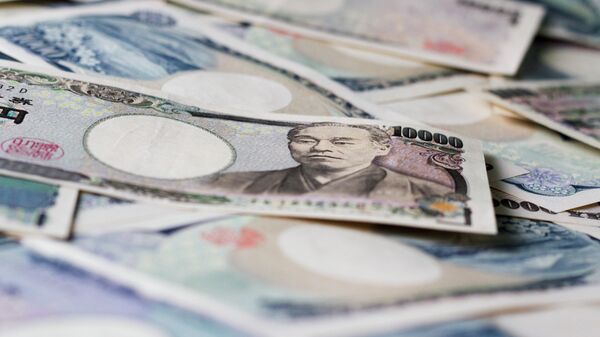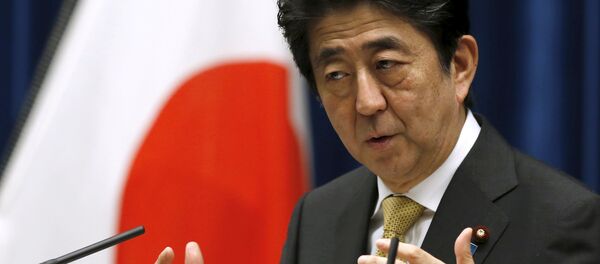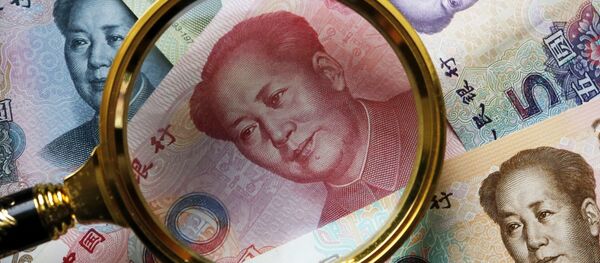Kristian Rouz – The Japanese yen, having substantially advanced against the dollar in the past several months, remains on the ascending trend as emerging market volatility and Brexit risks triggered investors to rush for safe haven assets, whilst the improvements in the Japanese economy boosted by fiscal stimulus, bucked the trend.
As the yen soars, and the dollar and British pound are poised for gains, the appreciation of the entire basket of reserve currencies might detach emerging markets from advanced economies.
On Thursday, the yen advanced to 109.42 against the dollar compared to its ‘normal’ 52-week FX rate of 120-125. Investors have been hedging their currency positions buying into the yen worldwide, as the European Central Bank (ECB) and Bank of England (BOE) are in a volatile situation ahead of the Brexit vote on 23 June, rendering both the euro and the sterling an unlikely safeguard investment.
Meanwhile, trading in the dollar is held back by the uncertainty of the Fed’s next moves, as further protractions in hiking the interest rate would weigh on the greenback’s FX rate, leaving the yen the only major reserve currency to buy. Trading volumes in the Swiss franc are historically thin.
"The sudden move shows how jumpy everyone is," an anonymous Tokyo-based currency trader commented on the yen’s sharp appreciation.
According to recent comments by the Japanese vice-minister of finance Masatsugu Asakawa, head of currency policy, Tokyo will abstain from any intervention in yen trading in the near-term, meaning the Japanese currency will appreciate further. Having weighed all the risks, Tokyo is likely to have concluded the negative consequences of the yen’s appreciation for Japan’s international trade are smaller than gains in capital inflows and strengthening domestic consumer confidence. Japan thus is firmly sliding away from the increasingly unprofitable international trade-based growth model to domestic consumption-driven growth, mitigating the risks of excessive exposure to global headwinds.
Nevertheless, the immediate reasons behind the yen’s sudden FX rate fluctuations are unknown. Even though the broader trend is ascending, the Japanese currency is unlikely to post massive one-day gains as it happened on Thursday, as there has been no major event triggering the developments. Spikes in capital outflows from mainland China might be the reason, but this is just speculation on the part of traders.
"A collapse in the renminbi would be a big shock to the global economy, and while I think some decline is unavoidable given capital outflows, I think it’s natural that the Chinese authorities are taking steps to moderate that decline,” Asakawa previously noted, partially explaining investors’ search for safe haven elsewhere, including in Japan.
"It feels like a big sell order is prompting the trade,” Daisaku Ueno of Mitsubishi UFJ Morgan Stanley Securities Co said. “I don’t really know the reason."
Earlier this month, the yen hit its 18-month hight, boosting Japan’s consumer confidence and driving economic expansion out of last year’s recession. Amidst the favourable environment, the Abe cabinet is seeking to hike sales tax, a move allowing for an even greater fiscal stimulus, diminishing the prominence of Bank of Japan’s (BoJ) impact on growth. Therefore, despite all the commentary by select Japanese officials of how harmful the yen appreciation might be growth-wise, Tokyo might be interested in a dearer yen, particularly so as global oil prices are advancing, and the island nation is a major crude importer.
Taro Aso, Japan’s finance minister, noted on Wednesday the government would raise sales tax within the current timing framework. However, Abe’s office released a notice saying a delay hiking the sales tax is likely, stirring some confusion in the market.
"You have conflicting opinions coming out of the same government, and I think that's creating some noise in the market," Jennifer Vail of Portland, OR-based US Bank Wealth Management said.
Given that Japan is effectively lacking any capital control, and the BoJ’s policies are ultra-loose, capital influx is poised to continue, along with gains in the yen’s FX rate. However, this is hardly a major concern yet, as, according to the IMF calculations, a long-term weighed FX rate for the yen would be 103.3 per USD.






